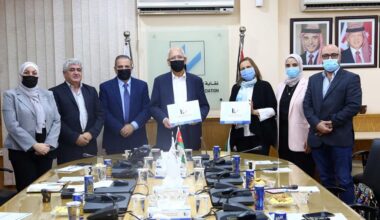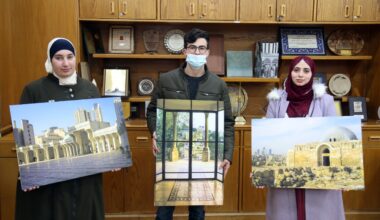CBRL continued its collaboration with the Jordan Engineers Association (JEA) during 2022, working with the JEA’s Architecture Division of Urban and Architectural Heritage Preservation Committee.
The year started with the online training course on the Principles of Preserving Architectural Heritage. The training in March, attended by 26 architects and architecture students, was given by experts in the field: HE Eng. Ihab Amarin, Dr Rami Daher, Dr Naif Haddad and Eng. Leen Fakhoury. The course, in four modules, highlighted the theoretical, technical, legal and technological aspects of heritage protection with case studies from Jordan and the region.
Following on from the course, webinars and events were organised to build on and complement the theoretical training course. The first was a tour of the historic centre of As-Salt on 27 August. Around 50 participated, including members of the Architecture Division and Heritage Committees, representatives of the CBRL Amman Institute, experts in urban heritage preservation, architects interested in cultural heritage and architecture students in Jordanian universities.
The participants visited Uqba Bin Nafeh Square, Al Hamam Street, Al Khader Street and St. George Al Khader Church, Al Ain Square, and the Lower Jadah area, ending with a lunch at Beit Aziz heritage house. They also met local pioneers who carried out community initiatives to operate the heritage centre of As-Salt with the local community’s participation.
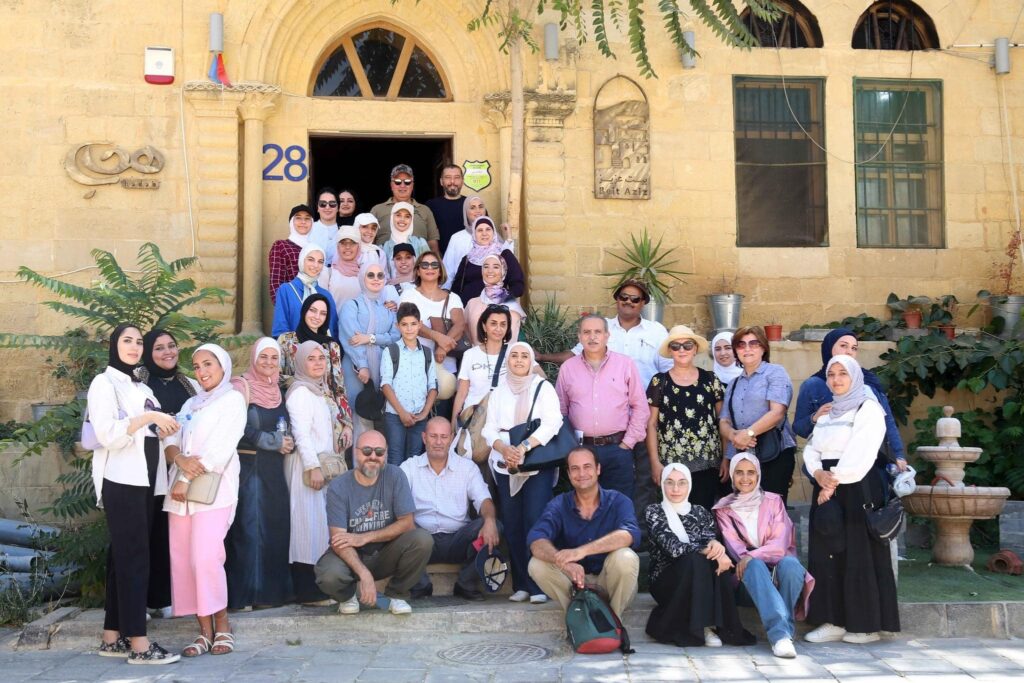
The historic centre of As-Salt was inscribed on the UNESCO World Heritage List in 2021 as “the Place of Tolerance and Urban Hospitality”. It demonstrates distinctive intercultural exchanges that resulted in transformations of the Levant through the flows of culture, people, skills, traditions and wealth within and between the cities of the region and beyond. These cultural exchanges are expressed in the city’s urban morphology, architecture and the development of social practices, including urban hospitality.
The partnership generated new collaborations with architectural and heritage organisations in Jordan and the region. Notably, CBRL and the JEA Heritage Committee collaborated with the Engineers Association in Jerusalem and the Architects Association in Palestine to share experiences of tangible and intangible cultural heritage protection in Palestine.
The initiative started with a webinar on the “Yalla” Project, a bottom-up urban regeneration approach to the old city of Nablus, delivered by Dr Abed Alrahman Kittaneh and Dr Alessandra Gola on 24 August. The lecturers highlighted how the trajectory of urban regeneration of Nablus old town follows a human-centered approach to sustain the old town’s liveliness and productivity. The team presented successful regeneration projects as social enterprise initiatives that work through cooperation to support effectively bottom-up regeneration approaches. The webinar attracted more than 120 attendees, including architects and engineers from around the world and was followed by fruitful discussions. You can watch the webinar on our CBRL YouTube channel here.
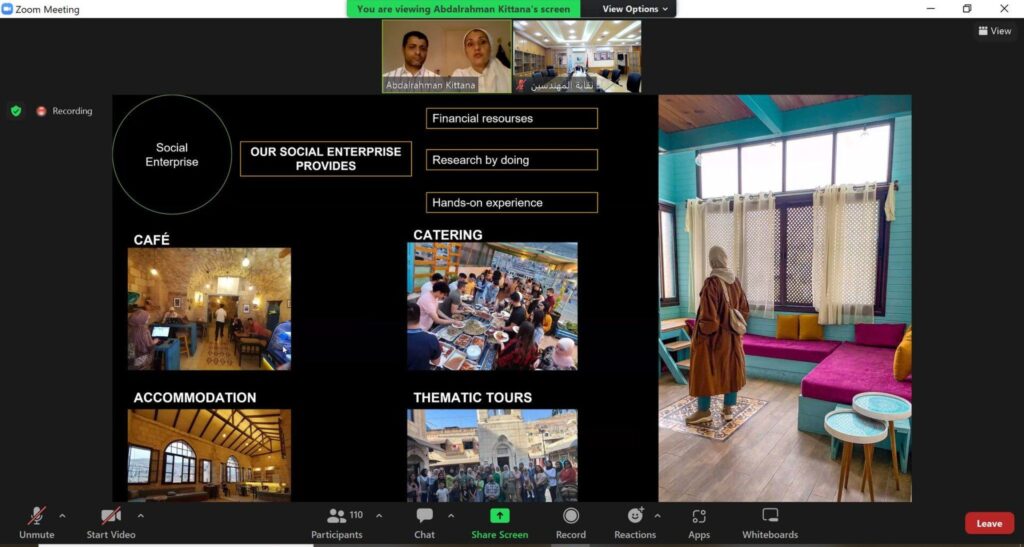
Building on this foundation, with the support of Greater Amman Municipality, the two partners organised a Heritage Day on the Rehabilitation and Development of Architectural Heritage in Palestinian Cities; an Experience to Share, on 5 November, under the patronage of HE Eng. Ahmad Samara al Zoubi, JEA President. The event was held in the presence of Eng. Nadia Habash, the Head of the Engineers Association in Jerusalem, and the Architects Association in Palestine, represented by Eng. Ibrahim al Hindi, Eng. Imad Dabbas, the Head of the Architecture Division, and Eng. Marah Khayyat, the Head of the Urban and Architectural Heritage Preservation Committee.
Representatives of NGOs (Non-Governmental Organisations) from Palestine gave presentations on their long-term activities, challenges and successes. There was also a poster exhibition on heritage protection initiatives with a focus on partnerships and collaboration at the institutional and community levels. The participating NGOs were the Hebron Rehabilitation Committee, the Palestinian Heritage Center in Bethlehem, Welfare Association – Taawon, and Riwaq Centre for Architectural Conservation.
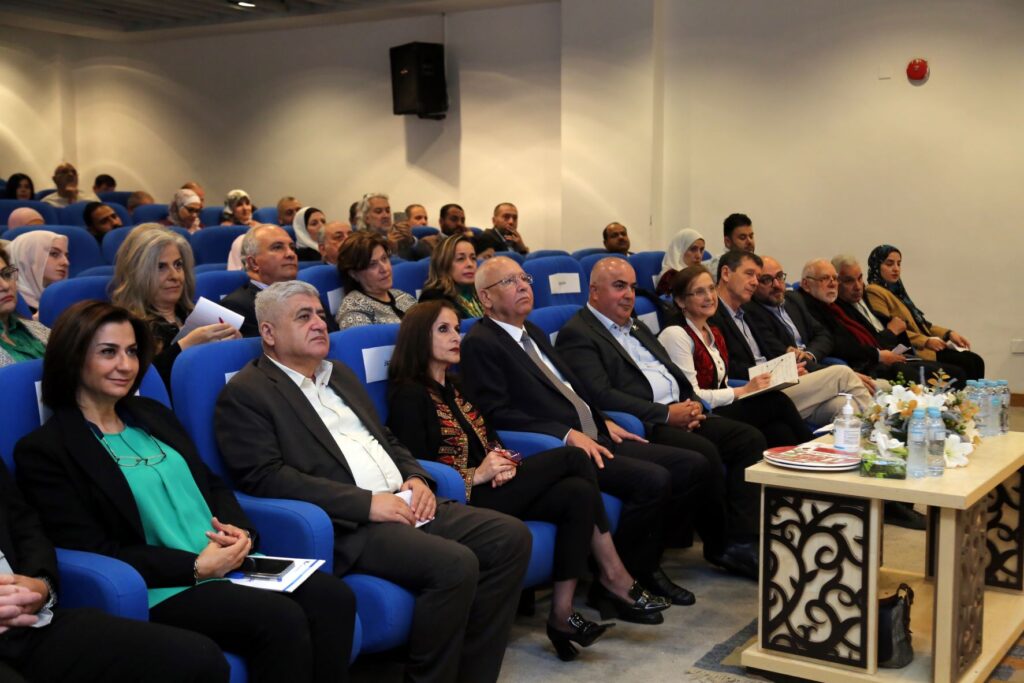
After the official opening ceremony, Eng. Habash gave a presentation about the Palestinian villages and the various institutions that work on heritage preservation and revitalisation projects, in addition to a historical overview of the architectural and urban heritage legal framework in Palestine and the subsequent obstacles that hindered the various restoration processes. The public in-person event was attended by more than 125 architects and architecture students and provided an opportunity for networking and generating debate on heritage-related matters in Palestine and Jordan.
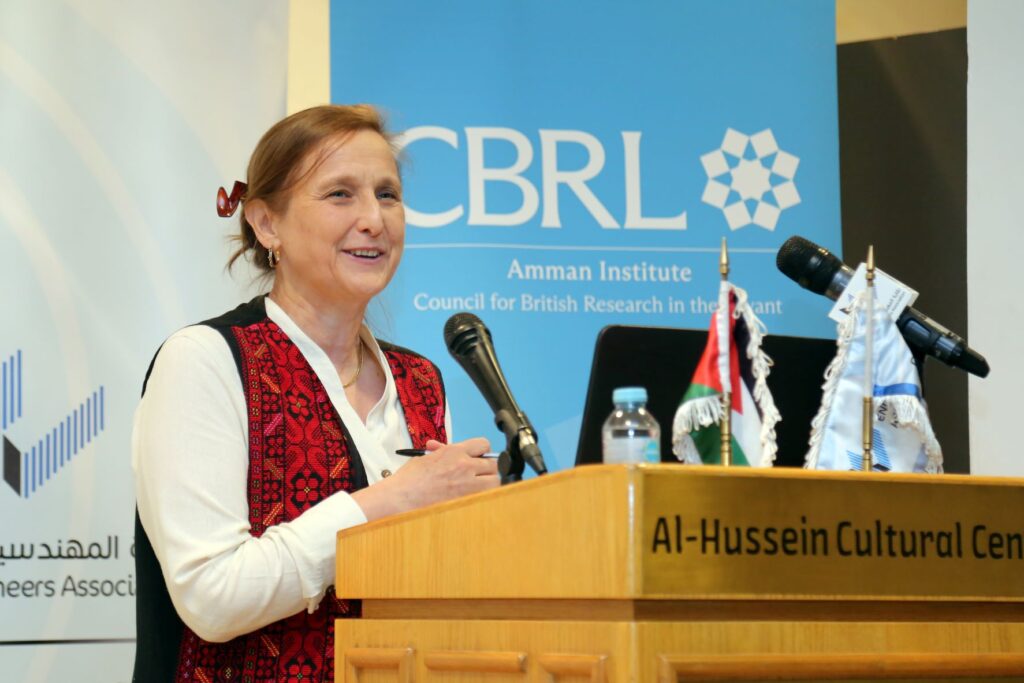
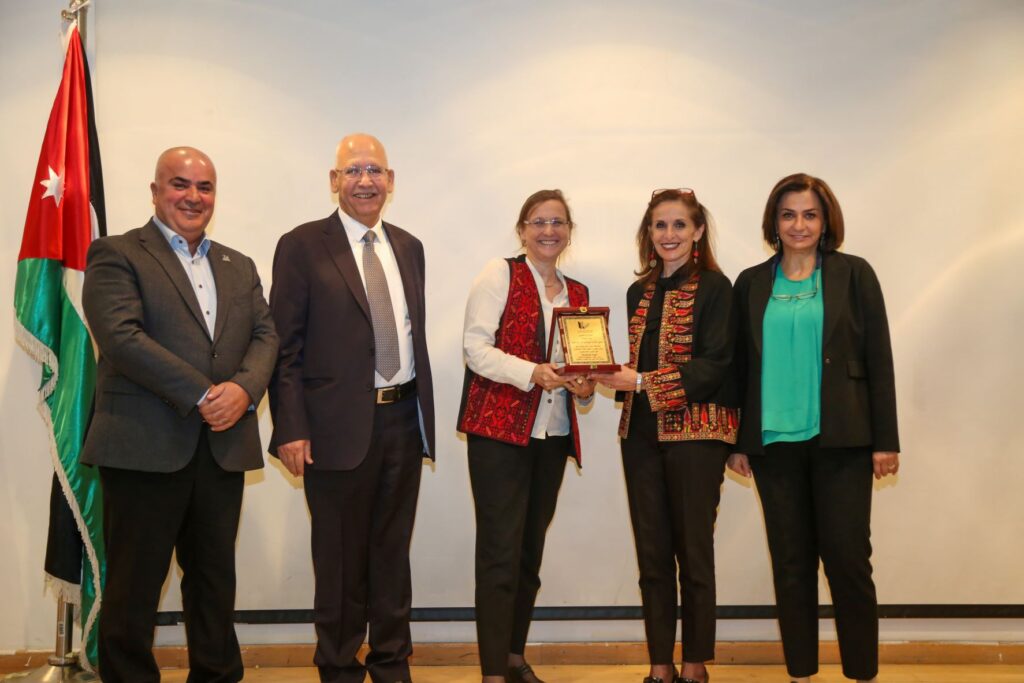 CBRL Director, Carol Palmer with HE Ahmad Samara al Zoubi, Nadia Habash, Imad Dabbas and Marah Khayyat. 5 October 2022. Photograph courtesy of the JEA
CBRL Director, Carol Palmer with HE Ahmad Samara al Zoubi, Nadia Habash, Imad Dabbas and Marah Khayyat. 5 October 2022. Photograph courtesy of the JEA
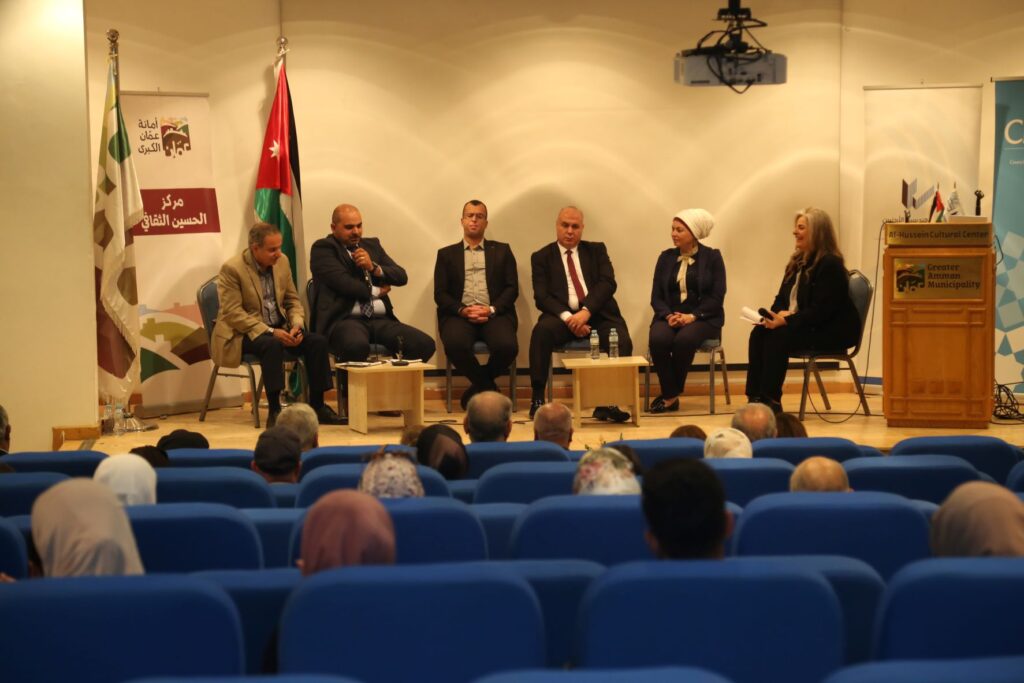
Through the collaboration with the Jordan Engineers Association, the CBRL Amman Institute has managed to reach more than 300 architects and architecture students in 2022 and build its network in Jordan. The partnership included activities for cultural heritage awareness raising and knowledge transfer, from webinars, training courses, heritage walks and heritage days to awards, to strengthen the links between the actors, create inter-community networks around built heritage-related matters, and to enhance the role of CBRL’s Amman Institute as a multidisciplinary research centre. We look forward to building on this partnership!
By Shatha Mubaideen
Shatha Mubaideen is Senior Research Officer at the Council for British Research in the Levant (CBRL) Amman Institute. She is an architect who attended graduate school at the University of Jordan, where she received an M.Sc. in Architectural Engineering and Cultural Resource Management. She had the chance to work closely in cultural heritage protection for the past seven years at the Mapping Digital Cultural Heritage in Jordan (MaDiH) project and the Department of Antiquities of Jordan (DoA). Shatha has several publications from her research projects on heritage documentation, heritage education and interpretation. She is also the co-founder of the Amman Heritage Houses Documentation Initiative.













